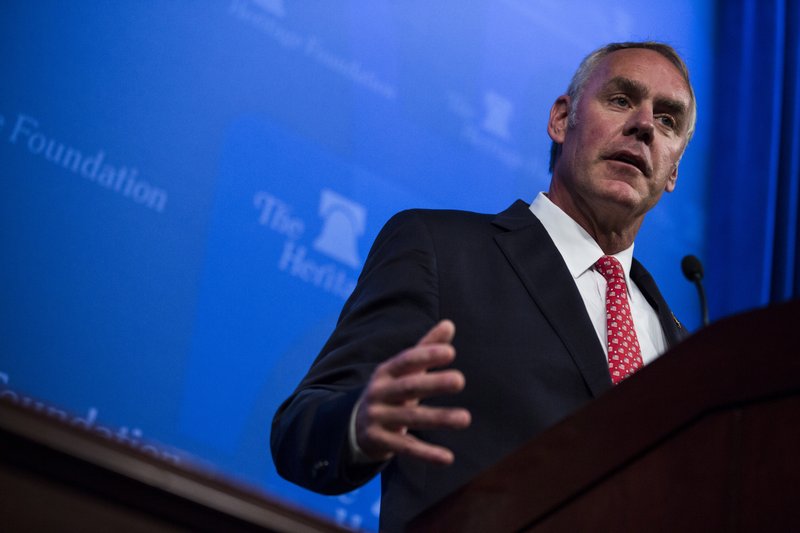WASHINGTON -- The Interior Department has adopted a new screening process for the discretionary grants it makes to outside groups, instructing its staff to ensure those awards "promote the priorities" of President Donald Trump's administration.
The Dec. 28 directive, obtained by The Washington Post, represents the latest attempt by Trump political appointees to put their mark on government spending. Last summer, the Environmental Protection Agency instituted a system requiring that a political appointee in the public affairs office sign off on each grant before it is awarded.
Scott Cameron, the Interior Department's principal deputy assistant secretary for policy, management and budget, instructed other assistant secretaries and bureau and office heads to submit most grants and cooperative agreements for approval by one of his aides. Those include any award of at least $50,000 "to a non-profit organization that can legally engage in advocacy" or "to an institution of higher education."
The EPA directive also targeted federal grants to universities and nonprofit groups. Although Cameron did not identify the total amount of funding affected by the new policy, and the department declined to comment on the matter, former Interior officials said hundreds of millions of dollars in expenditures probably would be affected.
[PRESIDENT TRUMP: Timeline, appointments, executive orders + guide to actions in first year]
An attachment to the directive listed Interior Secretary Ryan Zinke's "Top Ten Priorities" by which each award would be scrutinized. The list begins with "Creating a conservation stewardship legacy second only to Teddy Roosevelt" and includes "Utilizing our natural resources."
Although Interior Department secretaries under Democratic and Republican presidents have directed federal dollars to support their priorities, the new approval process appears to be without precedent within the department.
David Hayes, who served as the department's deputy secretary under Bill Clinton and Barack Obama, said in an email Monday that laws passed by Congress govern these programs.
"Subjugating Congress' priorities to 10 of the Secretary's own priorities is arrogant, impractical and, in some cases, likely illegal," said Hayes, executive director of the New York University School of Law's State Energy and Environmental Impact Center.
Cameron's memo warns, in a sentence that is boldfaced as well as italicized, that employees who defy the directive will be subject to even stricter oversight as a result.
Rep. Raul Grijalva of Arizona, the top Democrat on the House Natural Resources Committee, said in a statement that he would need to review the new system "but I'm immediately skeptical given the administration's track record."
"This grant approval process looks like a backdoor way to stop funds going to legitimate scientific and environmental projects," he said. "Using the federal grant process to punish scientists doing important work because they disagree with that philosophy is unacceptable, and there's good reason to think that's what's really happening here."
The Interior Department has ordered the National Academies of Sciences, Engineering and Medicine to halt two studies that conflict with the administration's goal of expanding domestic fossil-fuel production.
Officials said they had questions about the studies' expense to taxpayers. One, stopped in August, was looking at whether residents near surface coal mining sites in Appalachia face higher health risks than other Americans. The second, suspended last month, was aimed at updating and enhancing the Bureau of Safety and Environmental Enforcement's oil and gas inspection program.
A Section on 01/10/2018
